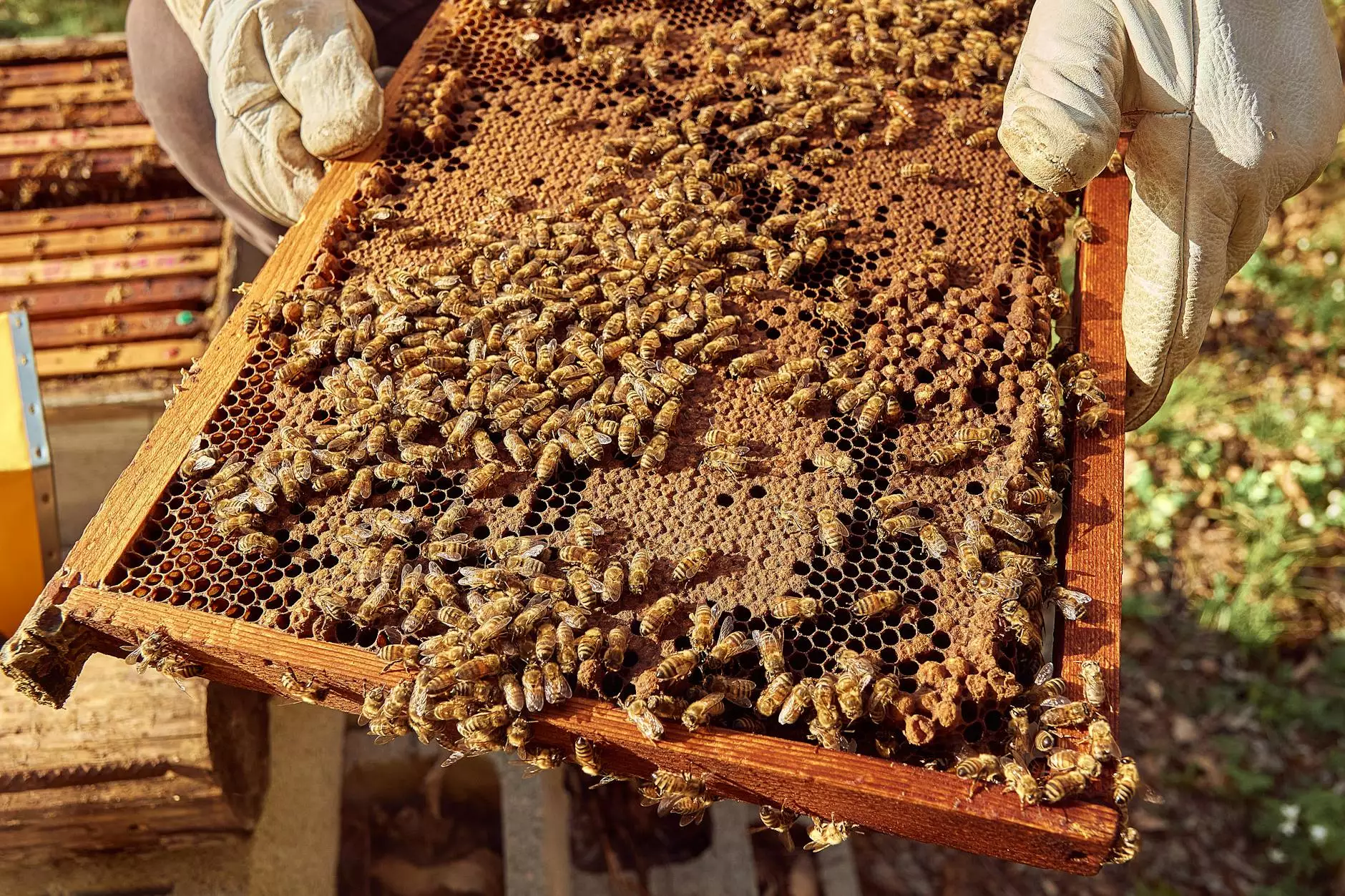The Hôtesse French Bee: A Jewel in Apiculture

The hôtesse French bee represents a remarkable aspect of the apiculture landscape in France. Known not just for its delightful taste of honey but also for its stress-free and friendly demeanor, this bee breed plays a crucial role in both the ecosystem and local economies. In this article, we will delve into the characteristics, advantages, and overall significance of the hôtesse French bee in promoting biodiversity and sustainable farming practices.
Understanding the Hôtesse French Bee
The hôtesse French bee (Apis mellifera) is primarily found in the southern regions of France. This species is admired not only for its hardworking nature but also for its unique genetic makeup that contributes to its robustness and adaptability.
1. Characteristics of the Hôtesse French Bee
- Gentle Behavior: One of the standout traits of the hôtesse French bee is its gentle disposition, making it an excellent choice for beekeepers of all experience levels.
- High Honey Production: This bee breed is known for its impressive ability to produce honey, yielding up to 30% more than some other breeds.
- Strong Colonies: These bees thrive in varying climatic conditions, making their colonies robust and less susceptible to diseases.
- Fast Foragers: The hôtesse French bee is a proficient forager, collecting nectar and pollen effectively, which is crucial for maintaining colony health.
2. The Importance of Hôtesse French Bee in Agriculture
The hôtesse French bee is more than just an adorable insect; it is a pivotal player in agricultural practices. Its role in pollination cannot be overstated. Here are the key ways in which this breed contributes to agriculture:
- Pollination: This breed enhances the pollination of various crops, ensuring higher yields and better quality produce.
- Crop Diversity: By pollinating a wide range of flowering plants, the hôtesse French bee helps maintain biodiversity in ecosystems.
- Sustainable Practices: Beekeeping with this breed promotes organic farming practices, reducing the reliance on chemical pollinators.
The Economic Impact of Beekeeping with Hôtesse French Bee
Beekeeping is not only an ecologically beneficial practice but also a significant source of income for local communities in France. Here’s how the hôtesse French bee contributes economically:
1. Honey Production
The honey harvested from hôtesse French bees is often regarded as a delicacy. With its rich flavor profile and therapeutic properties, it can command high prices in the market. The economic benefits include:
- Local Markets: Artisanal honey produced by local beekeepers can lead to thriving markets, showcasing the beauty of regional specialization.
- Export Opportunities: Unique French honey varieties can attract international interest, leading to lucrative export opportunities.
2. Beekeeping Tourism
Many regions in France have embraced beekeeping tourism, where visitors come to learn about the hôtesse French bee and beekeeping practices, further stimulating the local economy.
Conservation Efforts and the Future of Hôtesse French Bee
As the world grapples with declining bee populations due to various factors such as pesticides, habitat loss, and climate change, conservation efforts have become crucial. The hôtesse French bee is a key player in these initiatives.
1. Biodiversity Enhancement
Protecting the hôtesse French bee ensures the continuation of its genetic diversity, which is essential for maintaining healthy bee populations worldwide. Conservation efforts include:
- Habitat Restoration: Creating bee-friendly habitats helps support their foraging needs and contributes to overall biodiversity.
- Legislation: Governments are enacting laws to protect pollinators and promote sustainable farming practices.
2. Community Involvement
Engaging local communities in beekeeping initiatives fosters a greater appreciation for the hôtesse French bee. Workshops, school programs, and local events can raise awareness about the importance of bees in our ecosystem.
Starting Your Own Hôtesse French Bee Apiary
For those inspired to delve into beekeeping, starting an apiary with hôtesse French bees can be a fulfilling journey. Here are essential steps to get started:
1. Education and Training
Understanding the basics of bee biology, behaviors, and hive management is key to successful beekeeping. Consider attending workshops or online courses to gain the necessary knowledge.
2. Sourcing Bees and Equipment
Finding a reputable supplier for hôtesse French bees is critical. Ensure that you also invest in quality equipment, including:
- Bee Hives: Choose hives that suit your local environment and beekeeping style.
- Protective Gear: Proper clothing and equipment are vital for safe handling.
- Tools: Essential tools include smokers, hive tools, and bee feeders.
3. Setting Up and Maintenance
Once you have your equipment, choose a suitable location for your apiary. Regular monitoring of the hive, ensuring environmental conditions are conducive, and maintaining healthy colonies is essential for long-term success.
The Honey of Hôtesse French Bee
Honey produced by the hôtesse French bee has unique qualities that set it apart. Here's what makes it special:
1. Flavor Profiles
The flavor of hôtesse French bee honey can range from floral to fruity, depending on the nectar source. This complexity makes it a favorite among gourmet chefs and consumers alike.
2. Health Benefits
This honey is not only delicious but also packed with health benefits, such as:
- Antioxidants: Rich in antioxidants, this honey can contribute to better health.
- Boosting Immunity: Regular consumption can help bolster the immune system.
The Cultural Significance of Hôtesse French Bee
The hôtesse French bee embodies a rich tradition within French culture. From artisanal honey production to culinary uses, its impact is profound.
1. Culinary Arts
In French cuisine, honey is often used as a natural sweetener and flavor enhancer in various dishes and beverages, showcasing the versatility of hôtesse French bee honey.
2. Artisanal Traditions
The crafting of honey-based products—such as honey-infused spirits, soaps, and cosmetics—pays homage to the heritage and craftsmanship associated with hôtesse French bees.
Conclusion
In conclusion, the hôtesse French bee is more than just a bee; it is a symbol of sustainability, community, and agricultural progress. With its gentle nature and vital role in pollination, it paves the way for a brighter ecological future. By understanding, protecting, and promoting the hôtesse French bee, we not only ensure the survival of a remarkable species but also support the intricate web of life that sustains us all.
As awareness grows about the importance of our pollinators, let us champion the hôtesse French bee and its numerous benefits—both for our plates and for the planet.
hotesse french bee


